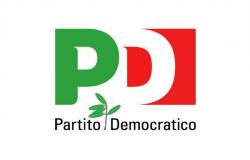After the “j’accuse” of Valle d’Aosta Open on the critical issues of Aosta Valley hosts of short-term rentals, the Department of Tourism, Sport and Commerce specifies that “in Valle d’Aosta the tourist tax is collected directly by the managers of the accommodation facilities and accommodation for tourist use, while There is no provision for collection via the platforms”. At present, the Region highlights, “no Aosta Valley municipality has entered into agreements with electronic portals for the collection of the tax”.
A choice “defined with regional law n. 10/2023, which was also possible to adopt as a result of our status as an autonomous Region” and which “was shared with the Municipalities through Celva“, in order “to have a correct application and control of the tax, for the benefit of operators and their guests”. In recent days, according to the Department, each landlord and each tourist-accommodation operator has been sent a communication via email to highlight the functioning of the tax and provide the amount of the tariffs.
In this note, Piazza Deffeyes adds, “it was highlighted in particular that although the Airbnb portal has provided different indications at a national level, in Valle d’Aosta no electronic portal can collect from guests of tourist accommodation facilities and accommodation for tourist use the tourist tax in the name and on behalf of their managers”. The Department therefore recalls the national panorama “in which various municipalities have published notices similar to the information that the department sent to each individual operator”.
Not only that, because “according to what was reported by the media, the Municipality of Rome has reported an online platform for tax evasion”. In this sense, “the choice of the regional legislator makes the application of the tax not only safer from the point of view of the verification and traceability of the amounts and the application of the exemptions and reductions envisaged, but also simpler for the majority of users, who otherwise, especially for those who operate on multiple channels and multiple platforms, would find themselves having different payment methods with the risk of non-compliance which would have repercussions on them with all the sanctions consequences of the case”.
“By relying on a platform that manages the process in a centralized way – the Region continues – the risk of running into problems with application or even partial evasion of the tax is not negligible, and in this case the difficulties and burdens would fall largely on the operatorswho could find themselves dealing with complaints from users or even investigations by the Municipalities”.
In conclusion, the Councilor for Tourism, Sport and Commerce “notes with regret that someone immediately argued about the topic, without previously discussing with the Department to find out the reasons for the initiative and evidently without carrying out further investigations”. Finally, the regional administration reiterates that it has “acted precisely to protect all operators and to simplify their obligations.”
Short-term rentals and tourist tax, Valle d’Aosta Aperta reports critical issues
April 14, 2024
“In Valle d’Aosta we continue to wanting to complicate the lives of those who manage short-term rentals, knowing full well that these are people who do not do it as a profession.” Valle d’Aosta Aperta writes this in a statement in which it highlights “critical issues and complications for Aosta Valley hosts”, in light of a “note relating to the collection of the tourist tax scheduled starting from 1st May” sent to them by the Region, in recent days.
In light of the changes introduced by the 2024 budget to Legislative Decree 50/2017 – is the reasoning of the political movement – “the online portals had announced that they could progressively collect and pay the tourist tax in all municipalities for bookings relating to short-term rentals, but the administration has highlighted that this cannot happen in Valle d’Aosta”.
Valle d’Aosta is open, recalling that “other regions and municipalities have welcomed this opportunity and made agreements with the managers of the online portals to allow the latter to manage the collection of the tourist tax on behalf of the tenants and pay it to the municipalities”, then the tourism department does not understand “for what reason it only provided for the online ‘tourist rentals’ platform set up by Inva also managed the obligations relating to the tourist tax”.
“Once again – concludes the movement – the autonomy flaunted in the administration’s note which recalls how Regional Law 10/2023 was also adopted pursuant to a provision implementing the Statute which allows derogations from national provisions, not only has not allowed for a simplification, but even an increase in bureaucracy”. Valle d’Aosta Aperta finally undertakes to “pay close attention to the critical issues that tenants are experiencing considering the great importance of these structures for the Valle d’Aosta tourist offer”.
Tags: Tourist tax shortterm rentals Region acted protect operators






